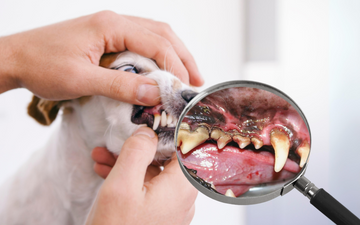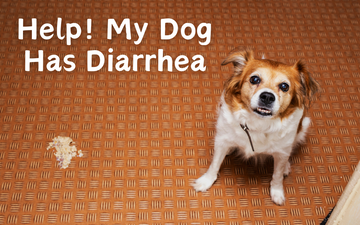
Have you observed any changes in your dog's water intake and urine output?
If you find that your dog is requesting to go outside more frequently to relieve themselves, has Poor body condition, dull and dry haircoat it might be time for a vet consultation.
These changes could potentially be indicative of renal issues or kidney failure in dogs.
If the veterinarian suspects and confirms renal failure they start your dog on antibiotics and fluids as they find the main cause behind the renal failure but in the meantime, you will be advised to modify the current diet of your dog to accommodate the change in metabolic dynamics of your dog and give the kidney time to heal and improve your dog’s quality of life.
Nutrition is one of the most important aspects in the management of chronic kidney disease (CKD).
Increasing the water intake of your dog should be your first step, adequate hydration helps support kidney function and can help alleviate some of the symptoms associated with CKD.
Ensure that clean, fresh water is always available to your dog. Make sure the water bowl is clean and filled regularly.
Add a small amount of water to your dog’s dry kibble to make it more enticing and hydrating.
Protein exertion is primarily done by the kidneys including excess nitrogen-containing compounds derived from the breakdown of proteins.
So it is very easy to assume that the first change that will be made is lowering the protein in the diet. A low-protein diet will show symptomatic improvement, the goal is to feed protein enough for all the physiological functions like muscle maintenance and immune function as a total restriction of protein should be avoided as the body will start to break down body tissue protein.
Make sure the dog food you choose has animal protein which contains all the essential amino acids).
Adequate nonprotein calories to maintain body condition should be provided by carbohydrates and fat.
A Carbohydrates and fats ratio of 3:1 is advisable. Consumption of an adequate amount of carbohydrates in their diet can help spare or preserve the dog’s body's protein stores and reduce the need for your body to use protein as an energy source.
Polyunsaturated Fatty Acids, Omega-6 Fatty Acids and Omega-3 Fatty Acids are given in a ratio of 2:1.
Omega-3 Fatty Acids have renal protective properties and can be supplemented in the diet of a CKD patient.
We have looked into macronutrients but it is the micronutrients that play a significant role in nutrition that is provided to a dog in renal failure.
Sodium intake plays a very crucial role in managing and improving a dog's quality of life. Sodium affects the blood pressure of the dog. Sodium intake increases thirst but as the kidneys are not working properly they are not able to maintain the fluids hence a reduced intake of sodium will decrease the workload on the kidneys. Reduced sodium intake will also reduce protein output in urine.
The medicines used for the treatment of CKD promote the loss of potassium through urine. It should be compensated through the diet but you have to keep in mind that as the disease progresses the potassium is retained in the body and may be stored more than the normal amounts so the diet has to be adjusted accordingly.
Phosphorus is the next thing you reduce in your dog's diet as the kidneys help regulate and excrete excess phosphorus. However, in dogs with CKD, the kidneys' ability to remove phosphorus from the bloodstream becomes impaired. High blood phosphorus levels can further damage the kidneys and exacerbate the progression of CKD.
One way to make sure that you are not overfeeding phosphorus is to make sure that the protein you are feeding to your dog is not rich in phosphorus. High phosphorus levels also interfere with calcium absorption from the intestines and lead to a condition called secondary hyperparathyroidism.
You may be required to supplement vitamin Bs in the diet as dogs with CKD often experience a loss of appetite and may eat less, which can lead to inadequate nutrient intake.
B-complex vitamins. In renal failure, where dogs may have decreased energy levels, providing adequate B vitamins can support their metabolic needs and overall vitality. Vitamin B also supports the production of red blood cells and contributes to a healthy immune system.
Kidney diet for dogs, especially those with Chronic Kidney Disease (CKD), emphasizes the importance of continuous monitoring and adaptations in response to frequent blood tests and nutritional needs. As CKD is a progressive condition, the dog's dietary requirements may evolve with the disease's progression. Therefore, regular consultation with a veterinarian is crucial to creating and adjusting a tailored dietary plan that matches the dog's stage of CKD, and overall health.






